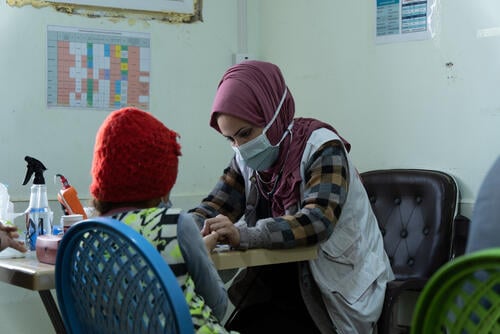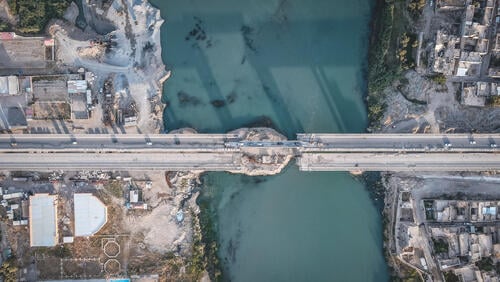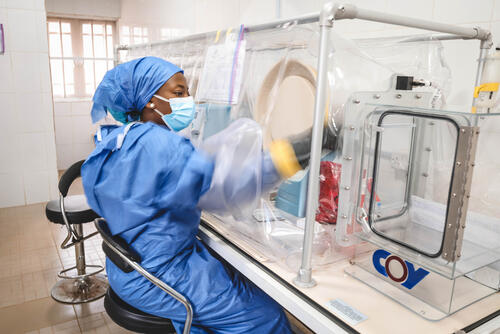On a bright sunny morning, Hashim Abdullah visited the Médecins Sans Frontières (MSF) clinic in Hawija, Iraq, for his final medical checkup before his medical care was transferred from MSF to the public basic healthcare centre. Hashim has been coming to the clinic since 2018 for treatment of a chronic health condition.
“I have been visiting MSF since I returned from the camp. Returning from displacement, we found everything we owned gone. No healthcare services were functioning,’’ says Hashim. “MSF’s free services helped me and many others in the area stay healthy while we rebuilt our lives and homes.’’
By the end of February 2024, as Hawija’s healthcare system continues to recover, MSF handed over all its activities in the Hawija district and Abassi sub-district of Kirkuk governorate to the Directorate of Health after eight years of providing medical care.
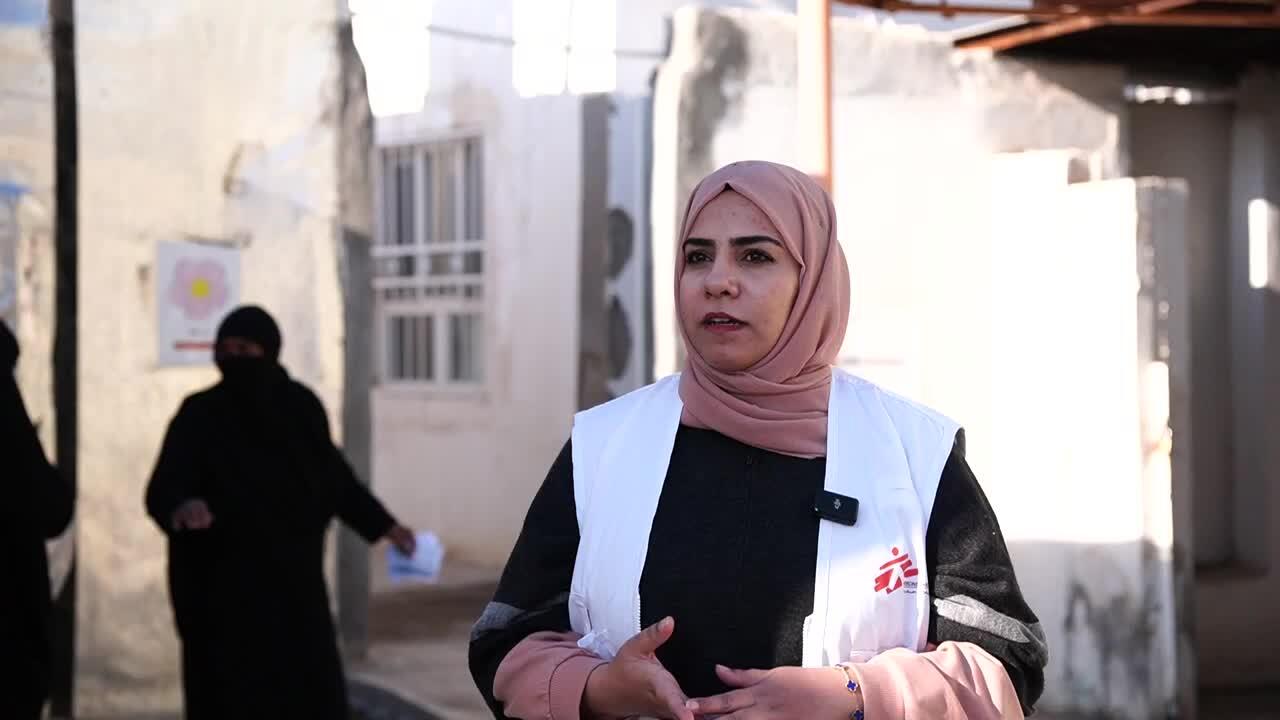
The eight-year journey in Hawija Governorate
Unfolding crisis, critical needs and an emergency response
Located at the western end of Kirkuk Governorate, the Hawija district was part of Iraq’s one-third of territory that fell under the control of the Islamic State (IS) group in 2014. For the next three years, thousands of people fled their homes, leaving everything behind. The displacement worsened when armed battles to retake control of the district began in 2017.
Hundreds of thousands were displaced from Hawija into camps in Kirkuk and other governorates. The district’s health infrastructure sustained significant damages; not only from the armed battles but also due to the depletion of resources and services during the area's isolation from the rest of the country for three years.
As people fled their homes, MSF set up two mobile clinics in Debes and Maktab Khalid where displaced people arrived after their long journey to escape Hawija. MSF also established a basic healthcare facility at the Daquq camp where most displaced people eventually settled.
MSF's work during eight years in Hawija and Al-Abbasi
18,137
18,137
161
161
101,126
101,126
144,562
144,562
6,568
6,568
10,443
10,443
“People arrived in a dire situation, both physically and psychologically. The children and elderly were significantly affected by the shortage of medical care and food before managing to escape,” says Aso Khalil, an MSF nurse from Kirkuk who started working with the organisation in January 2017 at the camp.
Omar Ali, an MSF health promoter, was living in Hawija before fleeing his beloved home, seeking safety. Throughout his escape, he had many encounters with MSF as a displaced person.
“MSF was there and witnessed everything we went through. We found MSF at the reception sites when we just managed to cross to safety. Then in the camps, where we went to live,” says Ali. “When we started to return home after the battles, MSF was there before us to cover the needs of the returnees.”
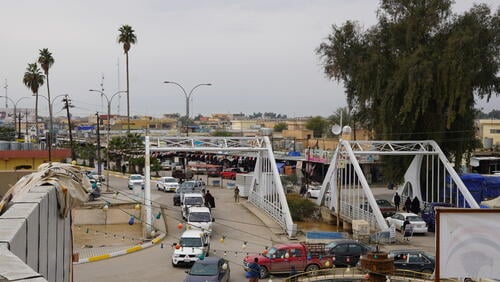
When the fighting ended, almost all basic services were non-existent across Hawija. To assist those who stayed home, and anticipating a large wave of returnees, MSF arrived at Al-Abasi subdistrict.
“Our teams arrived first at Al-Abbasi town and established a temporary basic healthcare centre as the public one was damaged in the fighting,” says Sellah Moraa, MSF deputy head of mission in Kirkuk. “Shortly after, we extended our activities and started working at the basic healthcare centre of Hawija main town.”
Through both facilities, MSF provided medical care for people affected by non-communicable diseases and provided sexual and reproductive healthcare, mental healthcare and health promotion services.
The journey of resilience and recovery
Over the past eight years, the Hawija district saw a remarkable recovery that is visible in all aspects of life.
Ahmed Sideeq, a Hawija resident who chose to stay home in fear of getting stranded and facing worse living conditions in displacement camps, reflects on the changes in Hawija.
“Hawija was a disaster area back in 2017, especially after the massive explosion in the industrial zone following an airstrike. We barely had enough food to survive. For instance, one kilogram of sugar reached 100 $US while no one had any income in the first place,” says Sideeq. “Words cannot describe those days enough. But today we are in much better condition. Thankfully all aspects of life are back to normal.”
When I first came to Hawija and Al-Abbasi after the war, they felt like ghost towns. Today I see that schools, healthcare facilities, markets and life in general are all back to normal.Narmeen Abbas, MSF health promotion manager from Kirkuk
Today Hawija’s markets and famous farms are beating with life again and the district’s infrastructure is in a much better condition. The healthcare system in the district has seen some recovery; the Hawija General Hospital and its basic healthcare centre are functional again. The the basic healthcare centre in Al-Abassi has been reconstructed and is running, as well.
“When I first came to Hawija and Al-Abbasi after the war, they felt like ghost towns,” says Narmeen Abbas, MSF health promotion manager from Kirkuk. “Today I see that schools, healthcare facilities, markets and life in general are all back to normal. And this change makes me very happy.”
MSF activities in Hawija focused on a holistic approach to the treatment of chronic diseases, placing a priority on mental healthcare and health promotion, educating about lifestyle risk factors while improving mental wellbeing. In an area where mental health experts are scarce, this has meant investing in coaching local staff to deliver these services to a community that has experienced a crisis.
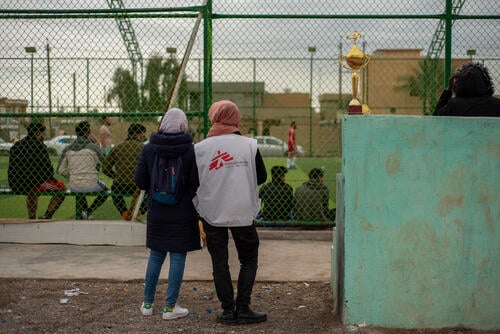
Capacities to continue and long-lasting bonds
Over those eight years, MSF worked closely with healthcare authorities to help restore access to basic health services. In addition to medical care, MSF supported the Directorate of Health with infrastructure rehabilitation at Hawija General Hospital and provided essential training and coaching to healthcare providers.
“While it’s time for us to end our activities as an emergency medical organisation, we believe that this is not the end,” says Moraa. “Our work here wouldn’t have been possible without the valuable efforts of our team members who are from Kirkuk or Hawija itself.”
“While we leave, we are confident in the solid skills that will stay here within the community and the healthcare system. They will continue sharing their skills and hard work with their communities even after we leave,” she says.



